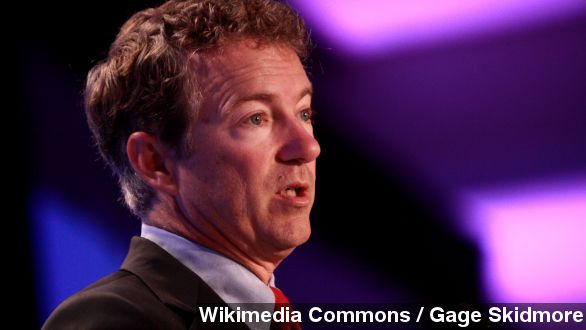Far be it from us to join in on the 2016 speculation this early, but when the time comes for Republicans to pick their nominee, Rand Paul has a decent chance. Which makes these newly-publicized comments from the senator on Dick Cheney and Iraq all the more notable.
PAUL: "Dick Cheney then goes to work for Halliburton, makes hundreds of millions of dollars as their CEO. Next thing you know, he's back in government, it's a good idea to go into Iraq. ... When the Iraq War started, Halliburton got a $1 billion no-bid contract." (Via YouTube / RandPaulsupporter)
That's Rand Paul in 2009, just before he began his Senate campaign, drawing a link between Cheney's time at the oil company Halliburton and the Iraq War.
It's a line of reasoning you usually hear from liberal critics, not libertarians. Liz Cheney, the former vice president's daughter, fired back after the video went public Monday, telling The Washington Post, “It’s not surprising since Senator Paul often seems to get his foreign policy talking points from Rachel Maddow.”
And there definitely is a big difference of opinion on foreign policy here. The Pauls and Cheneys are both political family dynasties in the GOP, but they couldn't be further apart on what role America should play in the world. And public opinion seems to be trending in the Pauls' favor.
This slick chart from the Pew Research Center shows the growing percentage of Americans who think the U.S. "should mind its own business internationally" — 52 percent. That's 10 points higher than after the Vietnam War. Those numbers are from last December.
But to look more specifically at what Republicans think, here's a 2011 Pew survey that shows opinion from conservative Republicans on whether the U.S. should be active in world affairs had actually flipped since 2004 — becoming more isolationist. So why is that?
A big part of it could be war weariness — after more than 12 years of conflict in Iraq and Afghanistan. (Via ABC)
But it could also be in part because of the inroads both Ron and Rand Paul have made in the GOP in the last few years. And now, Rand and his dovish foreign policy might have a Republican Party ready to listen. (Via CNN)


